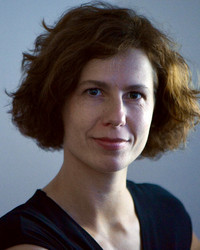Welcome to the Cognitive Neurology Group (CNG)
The Cognitive Neurology Group (CNG) is a satellite of the Department of Cognitive Neurology at the University Medical Center Göttingen (UMG), both headed by Prof. Dr. Melanie Wilke. We are hosted by and are closely associated with the Cognitive Neuroscience Laboratory (CNL) of Prof. Dr. Stefan Treue at the German Primate Center (DPZ).
We aim to understand the neural basis of conscious perception and how it relates to the selection and execution of action plans. Our research applies a multi-modal approach that combines causal brain perturbation methods with fMRI and electrophysiological recordings in behaving macaques, and comparative studies in healthy humans and patients suffering from e.g. stroke or Parkinson’s disease.
We closely collaborate with the Decision and Awareness Group (DAG) of Dr. Kagan and Prof. Dr. Bähr (Dept. of Neurology, UMG). Further collaborations include the Sensorimotor Group of Prof. Dr. Gail, the Neurobiology Laboratory of Prof. Dr. Scherberger, as well as Prof. Dr. Luther and Dr. Parlitz (Biomedical Physics Group at the Max Planck Institute for Dynamics and Self-Organization). Our work is funded by the Herrmann- and Lilly Schilling Foundation, the Volkswagen Foundation and Else Kröner-Fresenius Foundation as well as funding from the UMG and the CNL.
Research Projects:
Neural mechanisms underlying normal and impaired decision making and visuomotor behaviors
We investigate the external and internal variables underlying normal and impaired decision making and visuomotor behaviors that require the transformation between spatial reference frames such as reaching and grasping. To this end we perform intracranial recordings and fMRI studies in monkeys and humans and study the behavioral and neural consequences of structural and reversible brain lesions. In both monkeys and human patients we have a special focus on the contribution of higher-order thalamic nuclei such as the pulvinar on those behaviors and their causal influence on activity in parietal cortex.
Recent articles:
Wilke, M., Schneider, L., Dominguez-Vargas, A., Schmidt-Samoa, C., Miloserdov, K., Nazzal, A., Cabral-Calderin, Y., Dechent, Scherberger, H., Kagan, I., Bähr, M. Reach and grasp deficits following damage to the dorsal pulvinar. 2018. Cortex. 99:135-149.
Dominguez-Vargas, A., Schneider, L., Wilke, M.*, Kagan, I*. Electrical Microstimulation of the Pulvinar Biases Saccade Choices and Reaction Times in a Time-Dependent Manner. Journal of Neuroscience. 2017. Feb 22;37(8):2234-2257.
Hwang, E.J., Hauschild, M., Wilke, M., Andersen, R.A. Inactivation of the parietal reach region causes optic ataxia, impairing reaches but not saccades. Neuron. 2012. 76(5):1021-9.
Wilke, M.*, Kagan, I.*, Andersen R.A. Functional Imaging Reveals Rapid Reorganization of Cortical Activity after Parietal Inactivation in Monkeys. PNAS. 2012.109:8274-9.
Neural correlates of conscious visual perception
We investigate the neural mechanisms underlying conscious visual perception. Projects in this theme exploit visual illusions to dissociate sensation from perception and aim to understand the contribution of neuronal interactions on different temporal and spatial scales to visual awareness. We currently focus on testing whether identified neural correlates of consciousness found in monkeys are observable in human EEG/fMRI recordings, how much they depend on behavioral report and how neural variability affects perceptual states. In this context we recently became interested in heart-brain interactions as the heart is arguably one of the major contributors to neural activity fluctuations.
Recent articles:
Cabral-Calderin, Y. & Wilke, M. Probing the link between perception and oscillations: Lessons from transcranial alternating current stimulation. 2019. Neuroscientist. Feb 7:1073858419828646.
Miloserdov, K., Schmidt-Samoa, C., Williams, C., Weinrich, C.A., Kagan, I., Bürk, K. Trenkwalder, C., Bähr, M., Wilke, M. Aberrant functional connectivity of resting state networks related to misperceptions and intra-individual variability in Parkinson‘s disease. Neuroimage: Clinical. 2019. Online first: doi.org/10.1016/j.nicl.2019.102076.
Cabral-Calderin, Y., Schmidt-Samoa, C., Wilke, M. Rhythmic gamma stimulation affects bistable perception. Journal of Cognitive Neuroscience. 2015. 20:1-10.
Storm, F., Boly, M., Casali, M., Massimini, M., Olcese, M., Pennartz, C.M.A., Wilke, M. Consciousness regained: disentangling mechanisms, brain systems, and behavioral responses. Journal of Neuroscience. 2017. 8;37(45):10882-10893
Tsuchiya, N., Wilke, M., Frässle, S., Lamme, V. No-report paradigms: Extracting the true neural correlates of consciousness. Trends in Cognitive Sciences. 2015. Dec;19(12):757-70.
Group Members:
Aishwarya Bhonsle (CNG)
Hanna Eisenberg (CNG)
Kristin Kaduk (DAG & CNG)
Dr. Daniela Lazzarini (DAG & CNG)
Mathieu Pachoud (DAG & CNG)
Dr. Lukas Schneider (DAG & CNG)

